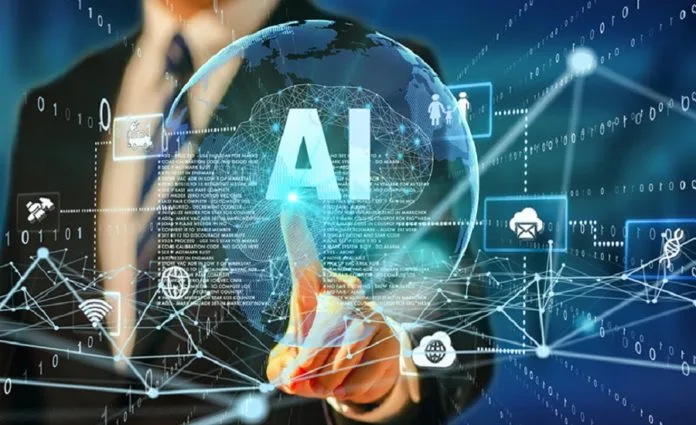Artificial Intelligence (AI) is revolutionizing the future of technology, driving remarkable advancements across multiple sectors. As AI continues to evolve, its ability to replicate human intelligence and perform complex tasks efficiently positions it as a crucial technology in shaping the future of artificial intelligence. From automation and personalized user experiences to healthcare innovation and enhanced cybersecurity, AI is reshaping how we interact with technology and unlocking new possibilities for the future.
1. AI-Powered Automation: A Glimpse into the Future
Automation is at the forefront of AI’s contribution to the future of artificial intelligence. Through automating repetitive and labor-intensive tasks, AI is streamlining operations and enabling businesses to achieve higher efficiency and cost savings.
- Manufacturing: In the future of AI technology, robotics, and AI-driven systems will dominate assembly lines, performing tasks faster and with greater precision.
- Customer Service: AI-powered chatbots are revolutionizing customer service, handling queries, and offering real-time solutions, which will only improve in the future of AI.
This increased efficiency allows organizations to allocate human resources to more creative and strategic tasks, setting the stage for further innovations in the future of AI technology.
2. Personalization: Crafting Unique User Experiences with AI Technology in the Future
As AI technology advances, personalization will play a key role in shaping the future of AI. By analyzing user data and behavioral patterns, AI algorithms are creating hyper-personalized experiences across various platforms.
- E-Commerce: The future of AI technology in retail will enable businesses to offer personalized product recommendations, enhancing user engagement and satisfaction.
- Voice Assistants: AI assistants will evolve to offer even more intuitive and personalized services, predicting user needs in the future of artificial intelligence.
In this user-centric future, AI will continually adapt and learn from individuals, ensuring that the AI technology of the future delivers unmatched personalization.
3. Advancements in Healthcare: The Future of AI in Medicine
AI is playing a transformative role in the future of artificial intelligence in healthcare, pushing the boundaries of diagnostics, treatment, and patient care.
- Diagnostics: The future of AI in healthcare includes the development of advanced AI algorithms that will assist doctors in early disease detection and accurate diagnosis.
- Robotic Surgery: In the future of AI technology, robotic-assisted surgeries will become more precise, minimally invasive, and safer for patients.
These innovations are helping doctors provide better care and treatment, marking a significant shift in the future of artificial intelligence in healthcare.
4. Cybersecurity: Safeguarding the Future of Technology with AI
As technology advances, so do cyber threats. The future of AI technology in cybersecurity will focus on enhanced digital defenses powered by machine learning and AI.
- Threat Detection: The future of AI will see AI systems actively detecting and neutralizing threats in real time, protecting sensitive data and systems.
- Biometric Security: AI-powered biometric authentication will continue to evolve, making unauthorized access more difficult in the future of artificial intelligence.
AI’s ability to learn and adapt ensures that cybersecurity systems remain agile and capable of defending against increasingly sophisticated cyber threats.
5. Ethical Challenges in the Future of Artificial Intelligence
While the future of AI presents exciting possibilities, it also raises several ethical challenges. These challenges must be addressed as we move toward a future where AI is more deeply integrated into everyday life.
- Algorithmic Bias: In the future of artificial intelligence, ensuring that AI systems are free from bias will be crucial to creating fair and transparent AI-driven solutions.
- Job Displacement: As automation becomes more widespread, the future of AI technology must include strategies to retrain workers and address the impact on employment.
Balancing the rapid advancements in AI technology with ethical guidelines will be vital for ensuring that the future of artificial intelligence benefits society as a whole.
Also Read
ChatGPT-4o: Can Advanced AI Help Us Be Safer Online?
Meta AI Now on WhatsApp, Instagram, and Facebook in India: Easy Setup and How It Works
Conclusion: The Future of AI Technology
As we look toward the future of AI, its impact on technology and society is undeniable. Automation, personalization, healthcare advancements, and cybersecurity innovations are just the beginning of what the future of artificial intelligence has to offer. However, to fully realize these benefits, we must also navigate the ethical challenges that AI presents.
By embracing AI technology in the future while upholding ethical standards, we can shape a world where AI serves as a powerful tool for progress, enhancing the way we live and interact with technology.








